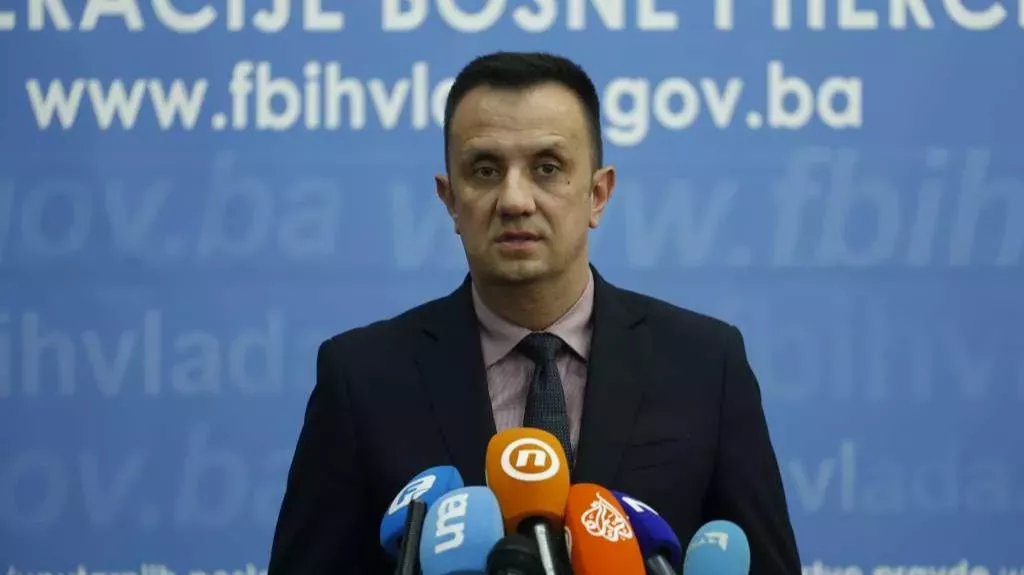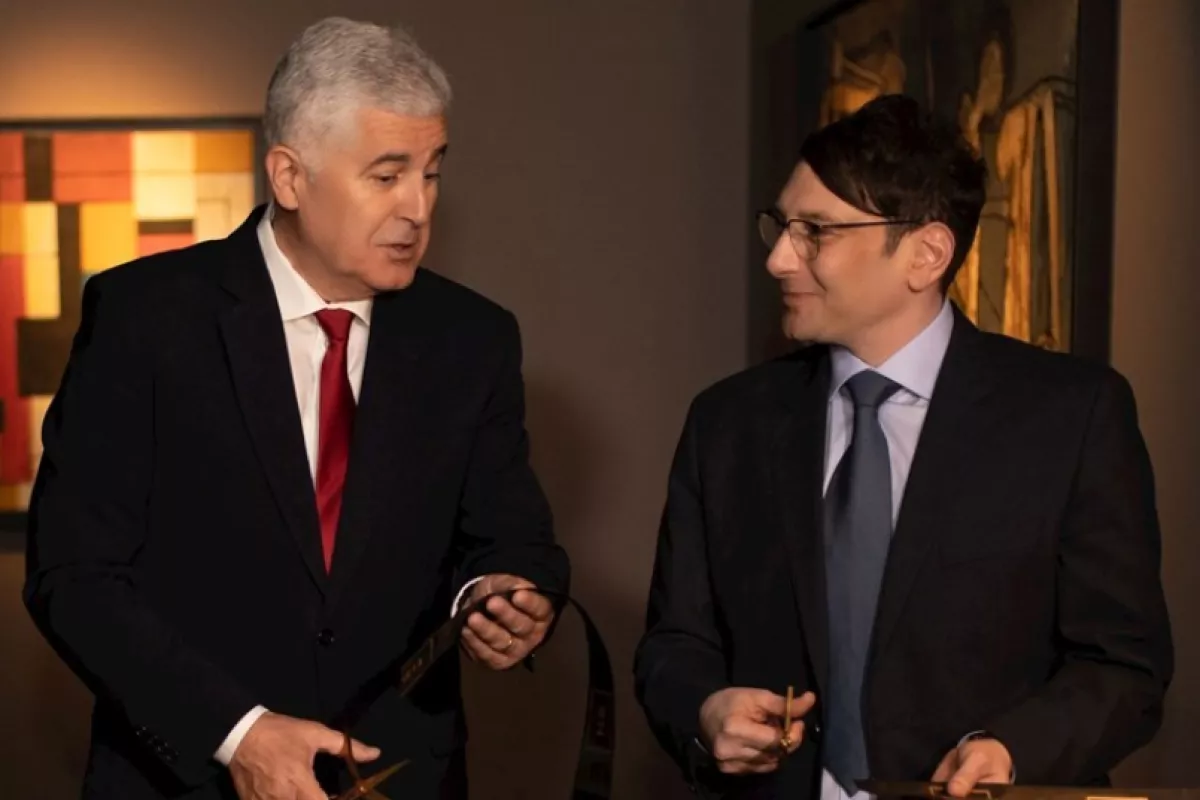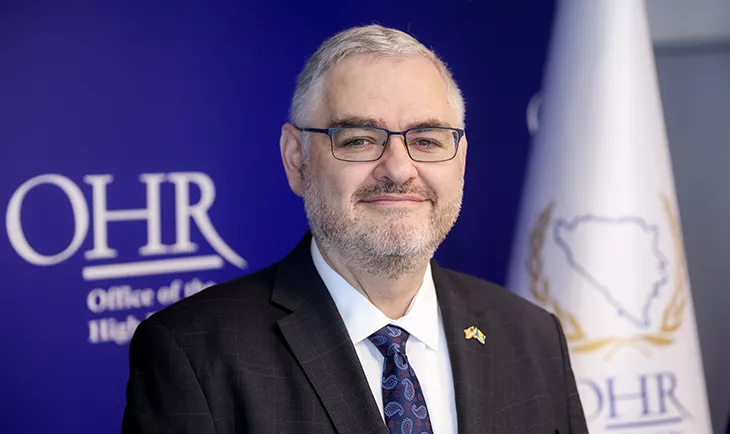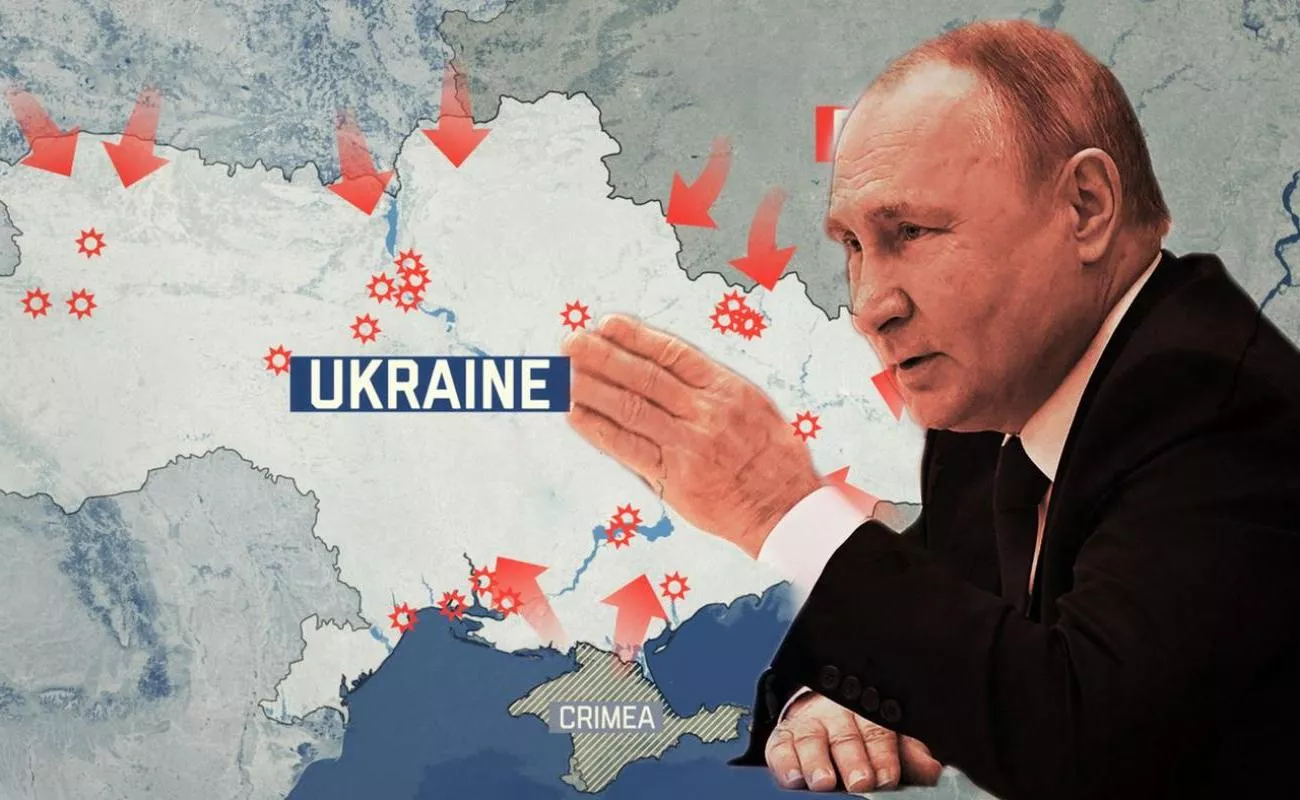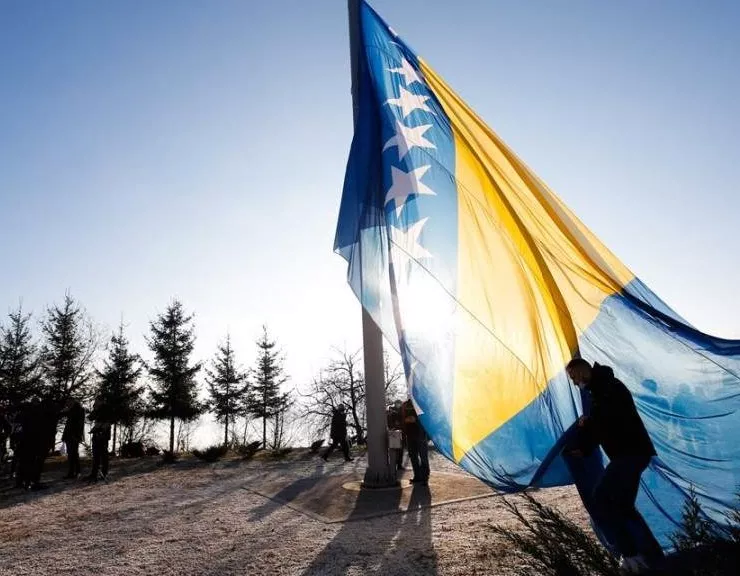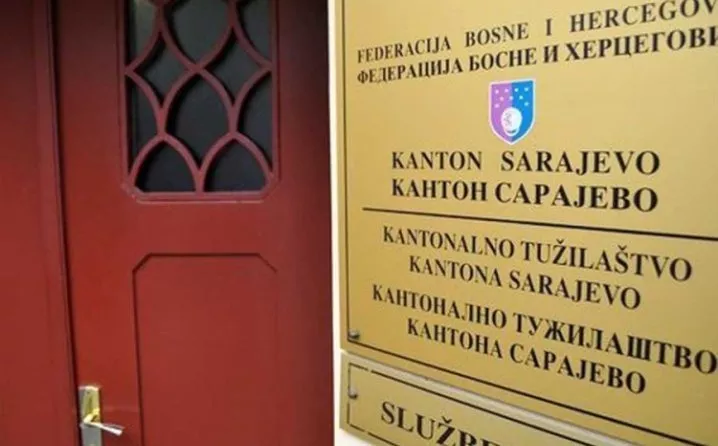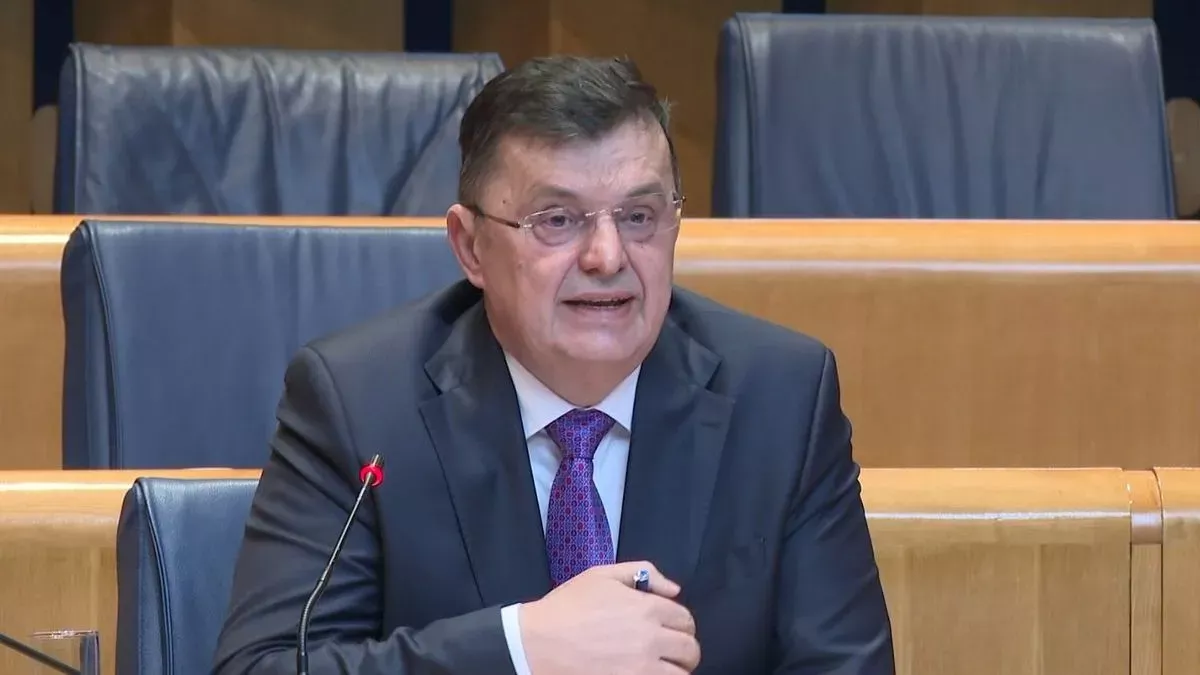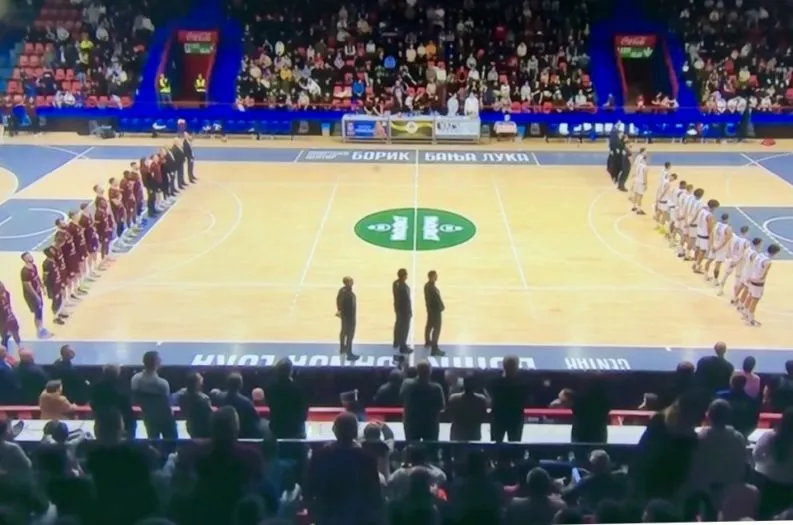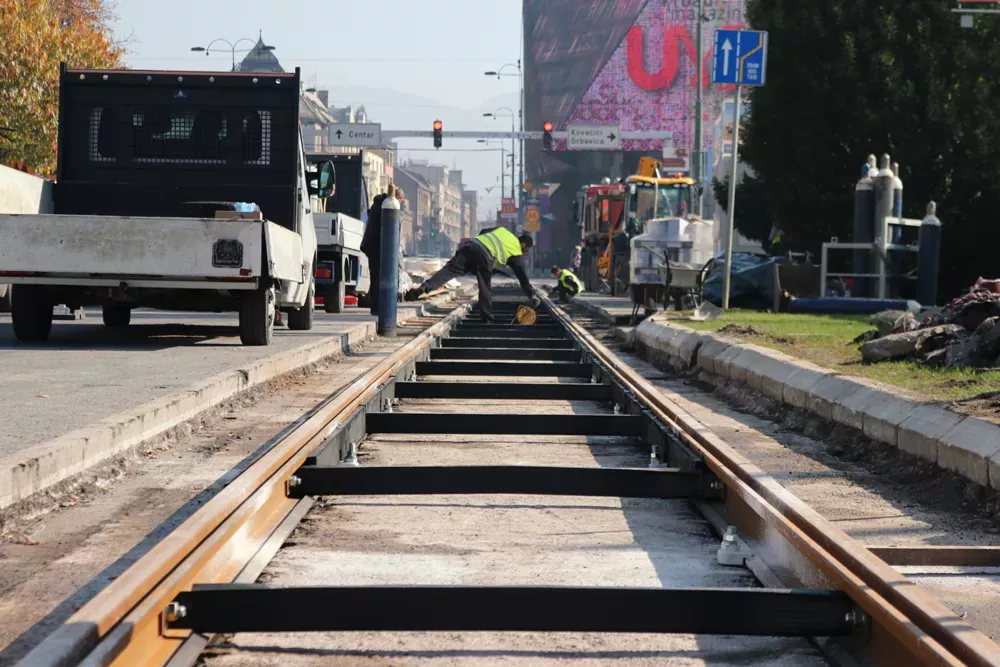


.jpg/vucic(1)__600x407.jpg.webp)
By: Armin Aljovic
While the leading political party in Serbia – Serbian Progressive Party (SNS) – and the Serbian president Aleksandar Vucic continue to aspire towards its neighbors’ territories, Kosovo in the east, and Bosnia and Herzegovina in the west, Vucic keeps repeating over and over again that the peace in the Western Balkans lasts only due to the responsible politics of Serbia.
In the beginning of the nineties, then government in Belgrade led by Slobodan Milosevic, after the breakup of Yugoslavia, attacked Slovenia, then Croatia, it instigated the bloody 4-year war in Bosnia, and attacked Kosovo.
The outcome of those wars and such politics of Slobodan Milosevic was in thousands of dead and displaced on all sides, devastated infrastructure, while thousands of families are still looking for their missing family members.
Further bloodshed in the former Yugoslavia was halted by the NATO military intervention in 1999, when Milosevic's regime was toppled. Two decades later, the current president of Serbia Aleksandar Vucic also leads as aggressive politics towards his first neighbors. However, he does not use military means as Milosevic did; instead he exerts constant political pressure, instilling fear in people of a new war.
Kosovo declared independence from Serbia in 2008. Since then, it has been recognized by more than 100 states, including the world powers such as the United States of America, Great Britain, France and Germany.
Serbia's neighbor to the west, Bosnia and Herzegovina received its recognition many years before, in 1992, including the recognition by Serbia in 1995, at the end of the war. Nevertheless, Serbia doesn't seem to be willing to quit creating problems to Kosovo and Bosnia. The official Belgrade still considers Kosovo their eastern province, while Serbian prime minister Ana Brnabic recently stated in the company of EU ambassador to Serbia Sem Fabrizi, that she was worried and frightened about the situation in Kosovo 'because you are dealing with the people who have literally come from the woods'.
Although Vucic in his media appearances keeps repeating himself about having respect for territorial integrity of BiH, his acts prove that he denies Bosnian statehood. Vucic wholeheartedly supports Milorad Dodik who seizes every opportunity to threaten with dissolution of BiH. With Dodik's help, Vucic is managing to block the reforms that could be of lots of use to the citizens of BiH in terms of economy and security, such as the NATO membership, or passing vital state laws.
During his latest visit to BiH, the Serbian defense minister Aleksandar Vulin thanked Dodik for not letting the Armed Forces of Bosnia and Herzegovina at the border with Serbia to help the police in preventing illegal migrants to enter BiH.
During his stay in Banja Luka, Vulin also said that no army would ever be able to separate Serbia and the Republika Srpska, endorsing Dodik's stance about mobilizing the Armed Forces along the eastern border, which could have reduced the increasing inflow of migrants over the past days.
Serbia's lack of reverence for sovereignty of BiH and Kosovo reveals that Serbia with the same nonchalance shows no respect for decisions of the world powers who all agreed that those countries had a right to statehood. Should the government in Belgrade continue to create troubles for its neighbors, which could have as a consequence destabilization of the entire southeast Europe, a possible response could be sanctions.
The president of the opposition party in Serbia, Liberal Democratic Party (LDP), Cedomir Jovanovic recently asserted that there could be no peace in the Balkans as long as Serbia had its Karadzics and Mladics (both convicted by The Hague for the crime of genocide) in Kosovo and Bosnia and Herzegovina. Jovanovic thinks that Serbia should opt for cooperation instead of destabilization of Kosovo and BiH. Only cooperation can benefit all the citizens, says Jovanovic.
